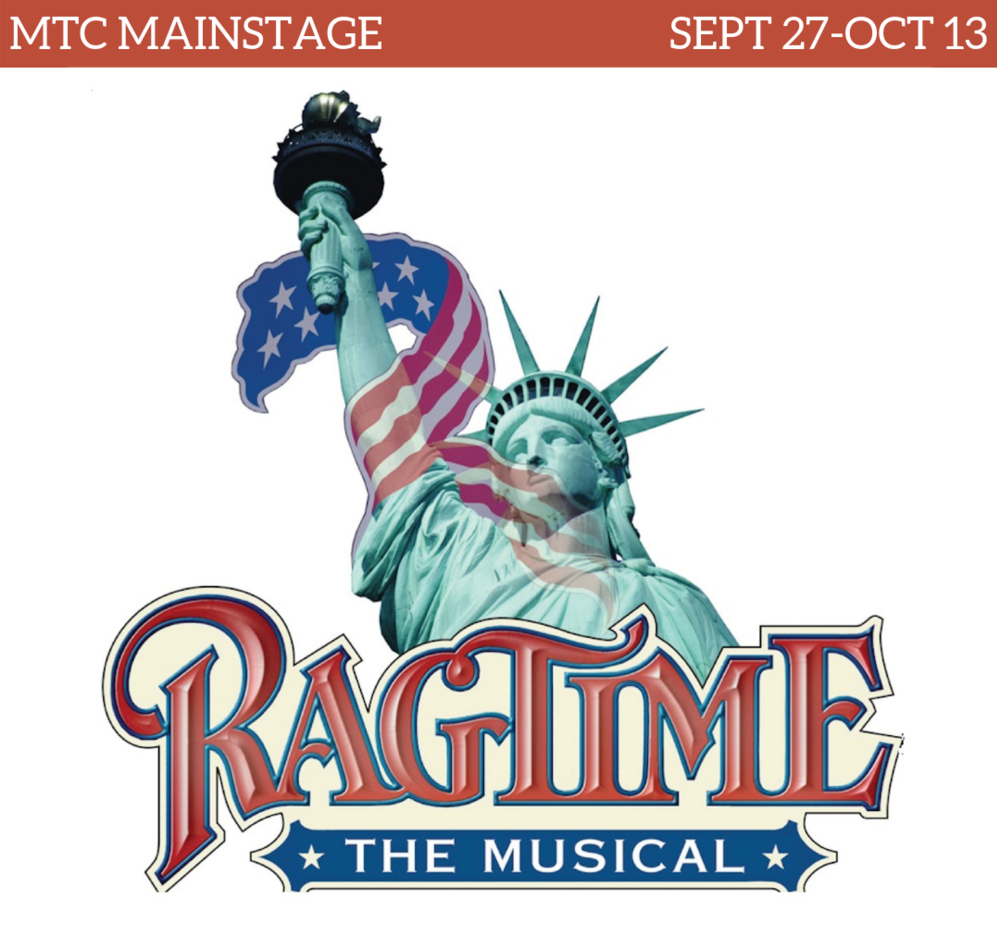Review of Little Shop of Horrors, ACT of Connecticut
Halloween comes every year. And it seems like barely a year passes without Howard Ashman and Alan Menken’s Little Shop of Horrors playing somewhere in Connecticut, a theater perennial. And why not? The show is tuneful, kooky, creepy, and full of fun nostalgia for the ‘60s. The 1960 original was a Roger Corman quickie flick—and intentionally funny, unusual for Corman—with Jack Nicholson in a small part as an eager dental patient. The musical retains much the same plot and makes the prospect of a man-eating plant an excuse for macabre laughs, songs silly and infectious, and what at first appears to be a rags-to-riches, poor orphan boy makes good and gets the girl story. And that’s part of the attraction of the show: the way it all goes wrong!
Audrey II, Seymour (Robb Sapp), Audrey (Laura Woyasz) in ACT’s production of Little Shop of Horrors
Seymour Krelborn (Robb Sapp) seems to be your typical sad sack nebbish, working in a flower shop that lacks customers while pining for his colleague, Audrey (Laura Woyasz—last seen at ACT in Working), who often shows up for work bearing the marks of her boyfriend’s physical abuse. That element of the show might seem less than funny, but it plays into the characterization of her boyfriend, Orin, a sadistic dentist. The joke draws on childhood (and maybe even adult) fears of visiting the dentist and makes such phobia reasonable. Orin, as enacted with scene-stealing glee by ACT Artistic Director Daniel C. Levine, is creepy and instantly unsettling. Good, given the fate that will befall him.
Chiffon (Kadrea Dawkins), Crystal (Ashley Alexandra Seldon), Orin (Daniel C. Levine), Ronnette (Rachelle Legrand)
Granted, the fate of these characters—including the shop’s boss Mr. Mushnik, ably played with a Gleason-like volume by William Thomas Evans—isn’t pleasant, but that’s also a key aspect of what makes the show fun. Ashman knows that, when watching the Creature Features of the commercial television era, we were often rooting for the monster. Here, the monster begins as a cute little plant Seymour has nurtured, its origins somewhat obscure. It’s such an anomaly, it soon draws sightseers and even some well-heeled customers to the shop. It’s a hit and Seymour gains notoriety as the plant’s handler. Dubbed Audrey II, the plant speaks—at least it does to Seymour—and its voice, provided by Kent Overshown, is richly cartoonish. Even when it’s demanding more and more blood—its necessary nutrient—and growing larger and larger, the plant seems a likeable if fractious pet. And yet, a blood-sucking plant with a mind of its own is not something you want to have to keep under wraps.
The show, with its seedy Skid Row set on a spinning stage that shows both the atmospheric outside and the changeable inside of the shop, has great tech—set by Ryan Howell, lighting by Jack Mehler, Sound by John Salutz and costumes by Ryan Park (my tip of the hat for the poster of Frankenstein vs. the Wolfman). The band kicks loud but doesn’t overwhelm the singers.
Chiffon (Kadrea Dawkins), Audrey (Laura Woyasz), Crystal (Ashley Alexandra Seldon), Ronnette (Rachelle Legrand), second row
The original musical never went to Broadway and ACT’s revival retains all the charm of quality Off-Broadway shows: it’s incredibly intimate, with the actors able to look much of the audience right in the eyes—Seymour even hands a flower to a lady to hold for him till needed. The chorus of backup girls—think The Supremes or Dream Girls, or (the girls’ names) The Chiffons (Kadrea Dawkins), The Ronnettes (Rachelle Legrand), The Crystals (Ashley Alexandra Seldon)—work the crowd as well, acting as the knowing narrators of this cautionary tale (the moral: “don’t feed the plants!”). And Levine, who keeps coming back as one creep after another, feeds off the audience’s energy the way Audrey II feeds off Seymour’s plasma.
Audrey II, Seymour (Robb Sapp), Audrey (Laura Woyasz)
As our unlucky lovers Seymour and Audrey, Robb Sapp and Laura Woyasz are attractive, romantic, and give off the aura of many a sitcom couple. We might almost believe they’ll work it out and make this a little shop of amours. And that’s what keeps viewers engaged, the way director Sparks capitalizes on the play’s varied tone—from romance to horror to comedy, or all at once. There’s even a classic bit of male bonding—“Mushnik and Son”—that comes off as if the start of a story about earning respect and finding one’s place in life. In fact, the show’s real moral might be said to show how outlandish success must generally own a few skeletons in the closet—or corpses in the vegetal maw. If you’ve already seen the show, it’s worth a drive out to Ridgefield to see again. And if you haven’t—don’t miss this chance to see this oft-produced show in such a wonderful theater. ACT has a great space where every seat has good sightlines.
A final word about puppeteer Thomas Bergamo. Audrey II is no electronic gizmo or special effect. He’s animated by Bergamo with a great sense of living presence and personality. Get ready, this invading vegetation is going places. Today Ridgefield, tomorrow—the world!
Little Shop of Horrors
Book and Lyrics by Howard Ashman
Music by Alan Menken
Based on the film by Roger Corman, Screenplay by Charles Griffith
Directed and Choreographed by Jason A. Sparks
Music Supervisor: Bryan Perri; Music Director: P. Jason Yarcho; Scenic Designer: Ryan Howell; Lighting Designer: Jack Mehler; Costume Designer: Ryan Park; Sound Designer: John Salutz; Wig and Hair Designer: Tommy Kurzman; Prop Master: Abigail Bueti; Puppeteer: Thomas Bergamo; Production Manager: Annie Jacobs; Production Stage Manager: Theresa S. Carroll
Band: P. Jason Yarcho, conductor/piano; Isaac Hayward, conductor/piano (10/31-11/3); Tom Cuffari, keyboards; Jeff Carlson, electric & acoustic guitars; Arnold Gottlieb, electric bass; Dennis Arcano, drums & percussion
Cast: Kadrea Dawkins, William Thomas Evans, Rachelle Legrand, Daniel C. Levine, Jaclyn Mercer, Kent Overshown, Robb Sapp, Ashley Alexandra Seldon, Ian Shain, Laura Woyasz
ACT of Connecticut
October 3-November 3, 2019














